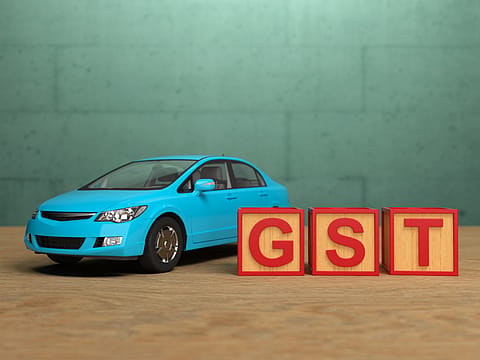Why motor insurance was kept out of GST exemptions
Life and health policies are basic services, while motor insurance is largely a mandatory legal requirement for third-party liability and vehicle damage, say experts

The Centre has exempted health and life insurance policies from 18% GST as part of the rate rationalisation measures announced last week. However, motor insurance policies have not been exempted from GST.
A prominent argument is that since owning and driving a vehicle is considered a personal choice or a business activity, a motor insurance policy cannot be classified as an essential service, unlike life and health insurance. "Motor insurance has not been exempted from GST because it is treated differently from life and health insurance. Life and health policies are basic services that influence people's health and financial situation. On the other hand, motor insurance is largely a mandatory legal requirement for third-party liability and vehicle damage. This makes it more like a financial service than a social welfare service,” says Naval Goel, CEO, PolicyX.com.
"Usually, GST exemptions are extended to socially beneficial services. With India’s relatively low penetration of health and life insurance, the government’s decision to make these products GST-free is a strong step to promote wider adoption and strengthen the country’s social security net. Unlike motor insurance, individual health and life insurance have now been placed at par with other essential goods and services, recognising them as necessities for the common man," said Balachander Sekhar, CEO of RenewBuy.
Revenue generation for the government is another reason. Since third-party insurance is mandatory for every vehicle owner, it becomes a steady source of GST collection for the government. Therefore, exempting such a tax would result in a significant loss for the government. For the government, Goel says, GST on motor insurance is also a significant source of revenue, whereas exemptions are granted only to services that directly benefit public welfare. Since owning and maintaining a vehicle is seen as an economic activity, motor insurance doesn’t fall under the exempted category.
However, insurance experts argue that removing GST on motor insurance could make it more affordable and help improve coverage, as people will be able to add many add-ons that they skip due to the high premiums. Vehicle owners often feel the pinch of higher repair costs despite paying higher premiums. GST adds an extra burden.
Hence, a section of experts suggests that at least third-party insurance should be exempt from GST, even though the compulsory portion of insurance may remain subject to GST. Better coverage provides better safety for them and their vehicles, experts say. "Reducing GST, at least on the compulsory third-party cover, would be a step in the right direction. It would ease the financial burden on millions of vehicle owners while keeping compliance and road safety intact," Goel says. By doing so, the government will reduce the number of uninsured vehicles on the road.